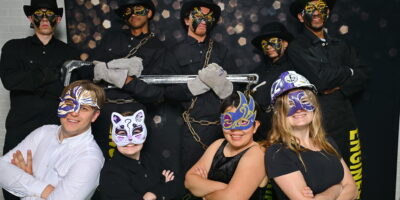If you know someone who attended a conference, or heard about an opportunity to attend a conference, then you probably asked yourself that question. Well I’m doing what I probably should have done a long time ago, and tell you what generally goes down in an engineering student conference. Not all conferences are the same, so for the sake of this article, I will mainly talk about what happens in annual general meetings.
Sessions
Sessions sessions sessions. Attending and participating in sessions is major part of a conference. I like to categorize sessions in to two categories. The first type of sessions are speaker sessions; this is where a speaker is invited to give a talk to the delegates. These can range from personal experiences of professional engineers, to political issues such as the importance of engineers in public policy. My favourite sessions were a leadership speaker, Drew Dudley, talking about the definition of leadership and the meaning of being a leader, and a session detailing the steps to effective lobbying.
The other kind of sessions, and my favourite, are roundtable discussions, where delegates from different schools sit down and discuss a certain issue. Issues that were discussed in the past include the EngSoc image, social media and advertising, and traditions and their impact on the society’s image. It is amazing to hear what other Engineering Societies do, and what problems they have encountered. Many initiatives that we tried in our engineering society stemmed from what other schools do, such as the creation of commissioner roles, the initiative to make the president a separate type of orientation week leader, and giving out ice cream for midterms.
Internal Administration
As the Vice President External of Waterloo Engineering Society ‘B’, I sit on ESSCO’s and CFES’s council, and a huge part of council’s work is done during conferences. Some of the work done by council during conferences, particularly in annual general meetings, include electing the new executive team, discussing the future of the organization, and holding a plenary session. A plenary session is basically a council meeting where motions are raised, such as mandating the executive or changing the official documents, discussed, and then voted on. Plenary sessions can get very intense. For example, CFES Congress 2012 plenary session ran for around 10 hours over 2 days, and that’s not even considered really long.
If you are a student who does not care about the internal governance of external organizations such as ESSCO and CFES, then you can safely skip these, as there usually are other sessions that are running concurrently.
Social Events
At the end of the day, when we’re done with sessions and plenary, we do like to kick back and have some fun. Yes, a lot of the events have alcohol. And yes, some delegates do drink much more than they should. I’m very aware of the stereotypes of VP Externals, and people who go to conferences. It has been a major point of discussion recently, and actually my motivation for writing this article. Unfortunately, these stereotypes do exist. But to be honest, you don’t need to get drunk to have fun, and conference organizers have been trying to hold alcohol-free sessions so students all of ages can participate. Personally, I like to sit down with a group of students, chill, and just talk. A lot of the times these talks are more productive than any session I have participated in that day.
I guess at the end of the day I’m trying to say that a conference is what you make of it. If you go to a conference wanting to learn from other schools and share your experiences, then you will learn a lot. If you go in expecting a party, then a party you will get.




Leave a Reply